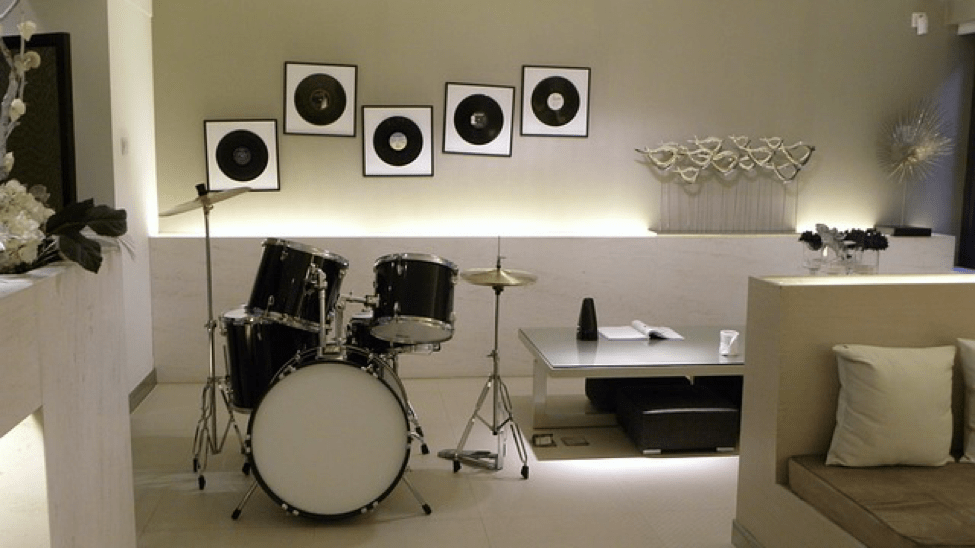Happy Tip # 1 for the muck: Make a picture of what you keep
Get an overview of the things that are stored in your basement. What lies and is everything around? It can be helpful to make a small sketch and record where it stands. Attention: Small sketch means, only very roughly record or write down what is available.
Because only if you know what you have, you can decide what is worth keeping.
There are certainly things that make sense in being in the basement because you only need them on certain occasions:
- Seasonal,so for example, decorative items for Christmas and Easter, sports equipment that you only in the summer or only in winter need, balcony furniture and equipment for balcony, terrace and garden
- Suitcases and bags
- moving boxes
- Cartons of electrical appliances whose warranty has not yet expired – if something breaks, you have the original packaging to send them in)
- However, what is not worthwhile and only wasted space are things that just take up space but do not give you any additional benefits:
- Clothes that you have already sorted out
- Deco items that you never use
- Cartons of electrical equipment whose warranty period has long expired
- An endless number of boxes, boxes and packaging materials
- Sporting goods that you have not used for a long time, because you do not have any more of this activity because they are broken because you just do not like them anymore
- Things that are brokenand cannot be repaired
- Things that you have replaced or are no longer using (for example, I still have an ancient tube TV in the basement)
- Folder with documents whose retention period has long expired
- Old schooldocuments, documents and books of education, training or study that you wanted to see through again someday. Be sure – you can find the latest information faster on Google.
- Things that you keep for others. For a short time, this can be a nice friendship service, for a longer period this is a waste of space. After all, you are not responsible for the clutter of others.
- Cables and remote controls of electrical appliances that have long since ceased to exist. Everything you have not used for more than 3 years.
By the way, a move is a great opportunity to get rid of these things. If you’re not moving, just pretend you’re moving. And think about what things you would actually pack in a box and move along with. Imagine the hassle of packing and unpacking. I am sure that one or the other will not come anymore.
Happy Tip # 2: Everything is much easier with planning and planning
The fact is that most cellars have limited space. And limited space always wants to be well used. Therefore, draw a plan of your cellar and think about where you want to put something. Here you can draw where you might
want a shelf, a cupboard or other storage options.
Also allow enough space for the things to come. And also, that you come easy and easy to the individual things. Nothing is as annoying as having to go down to the cellar with a machete or go through an obstacle course to get at individual things.
Think about whether you prefer to use cabinets or shelves. It can be very pleasant to close the door of a closet, but in the basement, I am a fan of open shelves. So, I see at first glance what is going on there. An even bigger fan I am from boxes, which I then neat! (well, I’m still working on that) label. Of course, also make sure that the shelves are mounted on the wall and can withstand the weight. Do not laugh, but that’s exactly what we’ve forgotten. The shelf fell over with a heavy thud and some of what was written on it was broken.
In theory, it looks like this: Things that are alike come into such a box and I write a lot about what’s in it. This helps enormously to keep the overview. If you’re out to get the Super-Order Heroine Crown, you’ll get a good look at what’s in the basement. So far, I have not made it, but I think the idea is terrific. So I know what I have stored where directly on my computer and does not have to go down to the basement to search for it. However, this only works if you are consistent and do not mess up too much in detail. Surely you do not have to write down if there are 5 or 7 screws in the tool box. Overlays would be sufficient in this case.
And as an extra happy tip: Check if your cellar is wet. This can have devastating effects on clothes or other textiles, on books and magazines, if so. Here the jeans test helps further. If you go down to the cellar with your jeans and it feels clammy, the basement is wet. That’s not so rare with cellars. Then, for the first time, put clothes that you do not need any more into the basement and see if they get muffy and damp. Or use plastic boxes that are easy to close. In my basement, there is a drying device in the meantime, because it was just too tired. Better option is to contact basement company in London for best solution.














